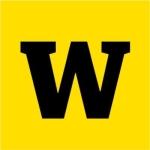Councils Unite on Approaches to Rubbish
Wellington City Council and seven other councils in the region are about to consult the public on a proposed regional approach to dealing with the 300,000 tonnes of rubbish and waste that we collectively (an estimated 626 kg per person) produce every year.
"This is an issue that is largely covered up - generally it's out of sight, out of mind - but it's also important,'' says Wellington City Councillor Ngaire Best - the Council's Three Waters and Waste Portfolio Leader.
"Most people just put their rubbish and recycling out at the gate and are happy when it's collected and disappears. But it's time we all took a good look at the issues surrounding waste management.
"While all the councils in the region do a good job in dealing with rubbish and other waste, and while there's already a good deal of cooperation and coordination, we believe we could all do so much better for the environment if we think and work together regionally."
Along with Wellington City, the councils considering the 2011/17 Draft Regional Waste Management and Minimisation Plan are Porirua City, Hutt City, Upper Hutt City, Kapiti Coast District, South Wairarapa District, Carterton District and Masterton District.
Wellingtonians are asked for their views on the plan in a consultation that begins today and ends on Friday 3 June.
Cr Best says people and councils in the region have a responsibility to look after present and future generations by "minimising our environmental impacts".
Quoting from the foreword of the plan, Cr Best says it represents a major step forward. "For the first time, all district councils of the region formally commit themselves to work together to promote effective and efficient waste management and minimisation."
The draft plan has been written by waste-management and policy staff representing all the councils. All councils are required to develop waste management plans following the passing of the Waste Minimisation Act in 2008.
The Porirua and Wellington city councils already jointly run the Spicer Valley landfill, and Porirua City's wastewater treatment plant near Titahi Bay handles sewage from Wellington City's northern suburbs - including Tawa and Churton Park.
Cr Best says more than 300,000 tonnes of rubbish and biosolids are received by the region's five main landfills each year. A further 53,000 tonnes of materials are recycled.
"I think we can do much better. Technologies are advancing rapidly to the extent that we can reuse and recycle materials far more effectively. If we work together we can really take advantage of economies of scale."
Cr Best adds there are presently inconsistencies in the way waste is dealt with around the region - this ranges from charges levied at landfills and the treatment of green waste, to education and what kind of materials landfills will and won't accept.
"However each council has an action plan and there's now a regional action plan that covers issues ranging from landfilling and recycling to dealing with packaging, reuse of materials and education."
Mike Mendonca, Wellington City Council's CitiOperations Manager - in charge of the city's landfills and waste operations - says Wellington and Kapiti are already jointly looking at better ways to deal with sewage sludge - the main by-product of a high-level sewage treatment plant.
"This stuff is pungent and a major generator of methane - one of the nastiest of greenhouse gases. It is a major headache for local authorities all over the world.
"In Wellington, as in many other cities, we are now landfilling our sludge and piping the methane off to generate electricity. But we want to look at other possible ways of dealing with this high-energy waste to reduce the impact on the environment - to make this excrement excellent, if you will."
He says the "messages" around waste minimisation are basically the same across the region - let alone globally. "So we've decided to see if we can get these messages out in a smarter and more cohesive way.
"A lot of our challenges are national and global but also created locally. Moves to reduce packaging can't be effected by one local authority. So we're looking at banding together on these sorts of things because nine voices together are better than one."
It is proposed that a regional joint committee be formed to hear and consider submissions and make recommendations on possible changes to the regional plan. The committee would comprise one councillor representative from each council.
If you want to have a say you can download the draft plan or a summary from the Public Input section of this website. The draft plan is also available at any Wellington City Council library or from the Service Centre at 101 Wakefield Street. Submissions can be emailed to policy.submission@wcc.govt,nz or posted to Wellington City Council, PO Box 2199, Wellington 6140, attention Sharon Bennett.
